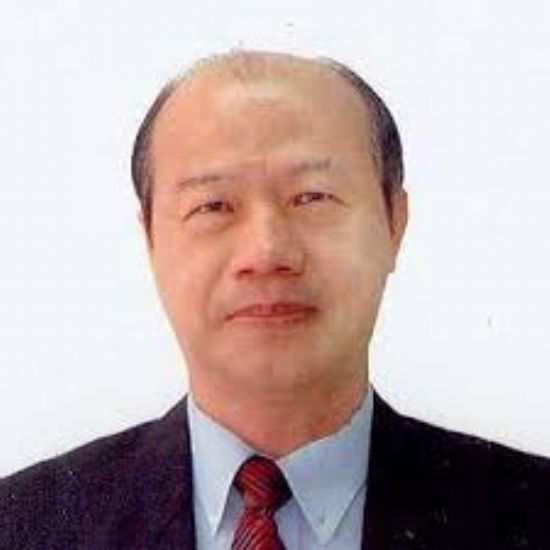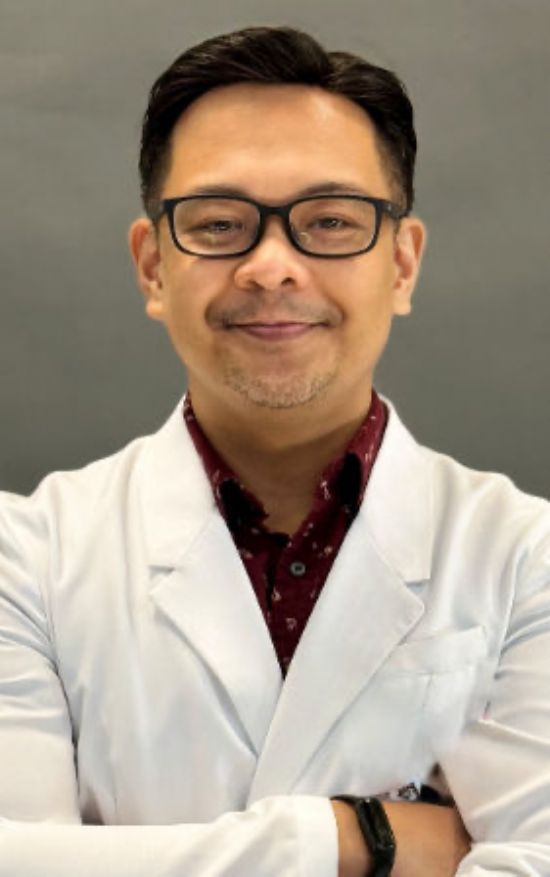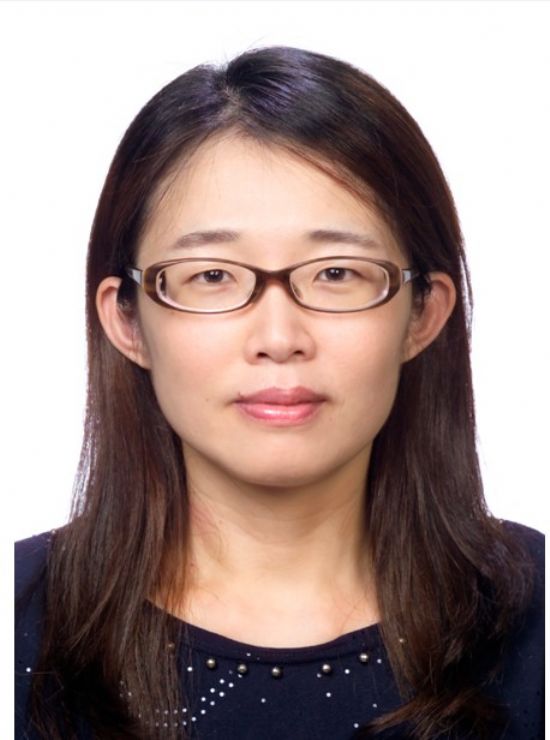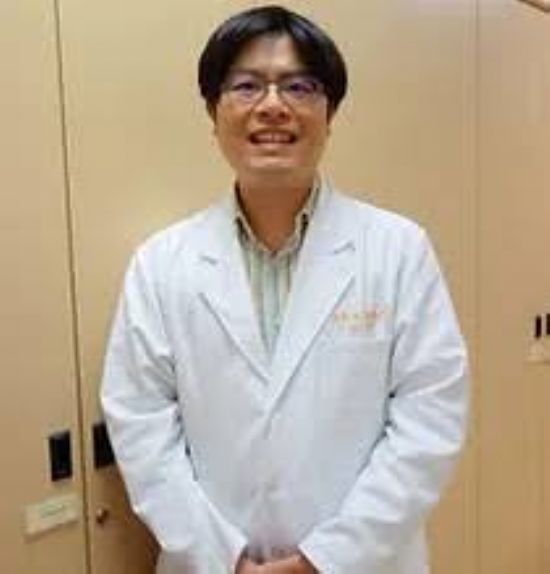Time slot's time in Taipei (GMT+8)
2025/11/21 14:00-17:30 Room 101 CD
- Kick-on Seminar VI
Evoked Potential: New Perspectives from the Old Tales for Advancing Applications in Real World
- Time
- Topic
- Speaker
- Moderator
- 14:00-14:30
- Visual evoked potentials as neurophysiological markers for understanding migraine
- Speaker:
Chi ieong David Lau
- Moderator:
Wei-Hung Chen
- Wei-Hung Chen
- MD
-
Attending physician, Department of Neurology, Shin-Kong WHS Memorial Hospital
E-mail:wihon.dang@gmail.com
Executive Summary:
Dr. Wei-Hung Chen graduated from National Taiwan University in 1985, and received his resident training of neurology at National Taiwan University Hospital from 1987 to 1991. He became a board-certified neurologist in 1990. He joined Department of Neurology, Shin-Kong Memorial hospital in 1992, and served as chief of the department in 2004. Dr. Chen’s specialties encompass myasthenia gravis, electrodiagnosis, critical care and headache.
Dr. Wei-Hung Chen graduated from National Taiwan University in 1985, and received his resident training of neurology at National Taiwan University Hospital from 1987 to 1991. He became a board-certified neurologist in 1990. He joined Department of Neurology, Shin-Kong Memorial hospital in 1992, and served as chief of the department in 2004. Dr. Chen’s specialties encompass myasthenia gravis, electrodiagnosis, critical care and headache.
- Time
- Topic
- Speaker
- Moderator
- 14:30-15:00
- Somatosensory evoked potentials (SSEP): a promising biomarker for chronic pain syndrome
- Speaker:
Chi-Chao Chao
- Moderator:
Sung-Tsang Hsieh
- Sung-Tsang Hsieh
- MD, PhD
-
Professor, National Taiwan University Hospital
E-mail:shsieh@ntu.edu.tw
Executive Summary:
Dr Sung-Tsang Hsieh graduated from National Taiwan University for his MD and completed neurology resident training at National Taiwan University Hospital. He got Neuroscience PhD at Johns Hopkins University and did postdoc at Neurology of Johns Hopkins Hospital. Currently Dr Hsieh is an attending neurologist at National Taiwan University Hospital and holds professorship at Department of Anatomy and Cell Biology of National Taiwan University. Dr Hsieh is a pioneer in developing skin biopsy and quantifying skin nerves as a pathologic signature of small-diameter nociceptive nerve degeneration. This skin biopsy approach has become the gold standard to diagnose small fiber neuropathy. With this achievement, he is one of the members in the Skin Biopsy Task Force of European Federation of Neurological Societies and was elected as a Fellow of American Academy of Neurology. Since pain due to small fiber neuropathy is potentially attributed to maladaptive brain responses, over the last decade, Dr Hsieh and his team have developed integrated assessment system of small fiber neuropathy incorporating quantitative sensory testing, contact heat evoked potential (CHEP), and heat-activated functional MRI. Hereditary transthyreting amyloidosis (ATTRv) is one of the etiologies causing small fiber neuropathy and autonomic dysfunction and Dr Hsieh’s group identified a unique genotype of transthyretin (TTR) A97S as the major etiology of Taiwanese with ATTRv. Furthermore, Dr Hsieh and colleagues established the first brain bank in Taiwan to investigate the mechanisms and therapeutic targets of rare disease and neurodegneration.
Dr Sung-Tsang Hsieh graduated from National Taiwan University for his MD and completed neurology resident training at National Taiwan University Hospital. He got Neuroscience PhD at Johns Hopkins University and did postdoc at Neurology of Johns Hopkins Hospital. Currently Dr Hsieh is an attending neurologist at National Taiwan University Hospital and holds professorship at Department of Anatomy and Cell Biology of National Taiwan University. Dr Hsieh is a pioneer in developing skin biopsy and quantifying skin nerves as a pathologic signature of small-diameter nociceptive nerve degeneration. This skin biopsy approach has become the gold standard to diagnose small fiber neuropathy. With this achievement, he is one of the members in the Skin Biopsy Task Force of European Federation of Neurological Societies and was elected as a Fellow of American Academy of Neurology. Since pain due to small fiber neuropathy is potentially attributed to maladaptive brain responses, over the last decade, Dr Hsieh and his team have developed integrated assessment system of small fiber neuropathy incorporating quantitative sensory testing, contact heat evoked potential (CHEP), and heat-activated functional MRI. Hereditary transthyreting amyloidosis (ATTRv) is one of the etiologies causing small fiber neuropathy and autonomic dysfunction and Dr Hsieh’s group identified a unique genotype of transthyretin (TTR) A97S as the major etiology of Taiwanese with ATTRv. Furthermore, Dr Hsieh and colleagues established the first brain bank in Taiwan to investigate the mechanisms and therapeutic targets of rare disease and neurodegneration.
- Time
- Topic
- Speaker
- Moderator
- 15:00-15:30
- Uncommon SSEP studies in clinical common disease
- Speaker:
Paulo Andre Teixeira Kimaid
- Moderator:
Zin-An Wu
- Zin-An Wu
- MD
-
Clinical consultant, Taipei Municipal Gandau Hospital
Attending Physician , Far Eastern Memorial Hospital
Clinical Professor of Neurology, National Yang Ming Chiao Tung University
E-mail:zawu2949@gmail.com
Executive Summary:
I am a modulator.
N/A.
I am a modulator.
N/A.
Lecture Abstract:
.
.
- Time
- Topic
- Speaker
- Moderator
- 16:00-16:30
- The Evolving Role of Evoked Potentials in Neuroprognostication
- Speaker:
Aatif Mairaj Husain
- Moderator:
Mark Anthony J Sta Maria
- Mark Anthony J Sta Maria
- MD
-
Secretary, Philippine Neurological Association
Immediate Past President, Philippine Society of Clinical Neurophysiology
Associate Professor, Ateneo School of Medicine and Public Health, Philippines
E-mail:markstamaria.md@gmail.com
Executive Summary:
Dr Mark Anthony Sta Maria is the immediate past president of the Philippine Society of Clinical Neurophysiology, and the country's representative for the Asian Oceanian Chapter of the International Federation of Clinical Neurophysiology.
He is a practicing neurologist in th Philippines with a special interest in neurophysiology, EMG-NCV, evoked potentials, and neuromuscular disorders.
He is also the incumbent secretary of the Philippine Neurological Association, and currently has several teaching positions in the academe, including being an associate professor and subject expert in neurosciences in Ateneo School of Medicine and Public Health, one of the leading medical schools in the Philippines.
He is also the current head of the neurophysiology laboratory in The Medical City, Philippines, the largest hospital network in the country.
Dr Mark Anthony Sta Maria is the immediate past president of the Philippine Society of Clinical Neurophysiology, and the country's representative for the Asian Oceanian Chapter of the International Federation of Clinical Neurophysiology.
He is a practicing neurologist in th Philippines with a special interest in neurophysiology, EMG-NCV, evoked potentials, and neuromuscular disorders.
He is also the incumbent secretary of the Philippine Neurological Association, and currently has several teaching positions in the academe, including being an associate professor and subject expert in neurosciences in Ateneo School of Medicine and Public Health, one of the leading medical schools in the Philippines.
He is also the current head of the neurophysiology laboratory in The Medical City, Philippines, the largest hospital network in the country.
- Time
- Topic
- Speaker
- Moderator
- 16:30-17:00
- TMS evoked EEG potentials: technique, interpretation and clinical applications
- Speaker:
Po-Yu Fong
- Moderator:
Wen-Li Chuang
- Wen-Li Chuang
- MD
-
Attending physician, Department of Neurology, Cheng Ching Hospital
E-mail:chunagwl@gmail.com
Executive Summary:
Dr. Wen-Li Chuang is an attending neurologist at Cheng Ching Hospital, Taichung, Taiwan, with more than two decades of clinical and research experience. She obtained her M.D. from China Medical College in 2000 and subsequently trained and practiced at Chang Gung Memorial Hospital before joining Cheng Ching Hospital in 2014.
Her academic and clinical focus lies in movement disorders, dementia, and neurophysiology. She has been actively involved in the Taiwan Neurological Society and the Taiwan Society of Clinical Neurophysiology, contributing both as a clinician and as an educator, certified by the Department of Education.
Dr. Chuang’s research has significantly advanced the understanding of cortical plasticity, noninvasive brain stimulation, and neurodegenerative diseases. She has co-authored peer-reviewed articles in leading journals such as Clinical Neurophysiology, European Journal of Neurology, PLoS One, and Movement Disorders. Her collaborations with international experts, including studies on theta burst stimulation and cortical modulation in Parkinson’s disease and essential tremor.
Through her combined clinical expertise and research contributions, Dr. Chuang continues to play an important role in bridging innovative neurophysiological techniques with real-world applications in the care of patients with neurological disorders.
Dr. Wen-Li Chuang is an attending neurologist at Cheng Ching Hospital, Taichung, Taiwan, with more than two decades of clinical and research experience. She obtained her M.D. from China Medical College in 2000 and subsequently trained and practiced at Chang Gung Memorial Hospital before joining Cheng Ching Hospital in 2014.
Her academic and clinical focus lies in movement disorders, dementia, and neurophysiology. She has been actively involved in the Taiwan Neurological Society and the Taiwan Society of Clinical Neurophysiology, contributing both as a clinician and as an educator, certified by the Department of Education.
Dr. Chuang’s research has significantly advanced the understanding of cortical plasticity, noninvasive brain stimulation, and neurodegenerative diseases. She has co-authored peer-reviewed articles in leading journals such as Clinical Neurophysiology, European Journal of Neurology, PLoS One, and Movement Disorders. Her collaborations with international experts, including studies on theta burst stimulation and cortical modulation in Parkinson’s disease and essential tremor.
Through her combined clinical expertise and research contributions, Dr. Chuang continues to play an important role in bridging innovative neurophysiological techniques with real-world applications in the care of patients with neurological disorders.
- Time
- Topic
- Speaker
- Moderator
- 17:00-17:30
- Diagnosis and monitoring of Psychiatric disorders using evoked potentials
- Speaker:
Ming-Hsien Hsieh
- Moderator:
Hsing-Chang Ni
- Hsing-Chang Ni
- MD, PhD
-
Professor, Chang Gung Memorial Hospital
E-mail:alanni0918@yahoo.com.tw
Executive Summary:
Dr. Hsing-Chang Ni is a Professor and Deputy Director at the Department of Psychiatry, Chang Gung Memorial Hospital (Linkou), Taiwan. He received his M.D. from the National Taiwan University (NTU) College of Medicine and his Ph.D. from the NTU Graduate Institute of Clinical Medicine. Dr. Ni specializes in child and adolescent psychiatry, with a major research focus on autism spectrum disorder (ASD) and non-invasive brain stimulation, particularly theta-burst stimulation (TBS) and repetitive transcranial magnetic stimulation (rTMS).
Since joining Chang Gung Memorial Hospital in 2009, he has led multiple nationally funded projects exploring the clinical efficacy, neuropsychological mechanisms, and neuroimaging correlates of TBS in autistic individuals. His recent studies have been published in high-impact journals such as Psychological Medicine, Autism Research, Journal of Autism and Developmental Disorders, and Neuroscience & Biobehavioral Reviews.
Dr. Ni currently serves as an executive board member of the Taiwanese Society for Developmental Disorders, the Taiwan Society for Brain Stimulation, and the Autism Society of Taiwan. He has also contributed chapters to books on non-invasive brain stimulation and child mental health.
Through his clinical, research, and leadership roles, Dr. Ni aims to advance the integration of neuroscience and psychiatry, promoting evidence-based neurostimulation approaches to improve emotional regulation, cognitive function, and adaptive outcomes in individuals with autism.
Dr. Hsing-Chang Ni is a Professor and Deputy Director at the Department of Psychiatry, Chang Gung Memorial Hospital (Linkou), Taiwan. He received his M.D. from the National Taiwan University (NTU) College of Medicine and his Ph.D. from the NTU Graduate Institute of Clinical Medicine. Dr. Ni specializes in child and adolescent psychiatry, with a major research focus on autism spectrum disorder (ASD) and non-invasive brain stimulation, particularly theta-burst stimulation (TBS) and repetitive transcranial magnetic stimulation (rTMS).
Since joining Chang Gung Memorial Hospital in 2009, he has led multiple nationally funded projects exploring the clinical efficacy, neuropsychological mechanisms, and neuroimaging correlates of TBS in autistic individuals. His recent studies have been published in high-impact journals such as Psychological Medicine, Autism Research, Journal of Autism and Developmental Disorders, and Neuroscience & Biobehavioral Reviews.
Dr. Ni currently serves as an executive board member of the Taiwanese Society for Developmental Disorders, the Taiwan Society for Brain Stimulation, and the Autism Society of Taiwan. He has also contributed chapters to books on non-invasive brain stimulation and child mental health.
Through his clinical, research, and leadership roles, Dr. Ni aims to advance the integration of neuroscience and psychiatry, promoting evidence-based neurostimulation approaches to improve emotional regulation, cognitive function, and adaptive outcomes in individuals with autism.









